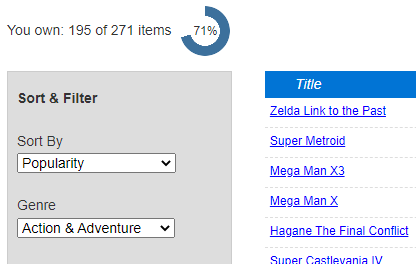While loading tens of thousands of comic book covers to PriceCharting’s new online comics price guide, we noticed that the portrayal of female characters seemed to become much more racy as the decades passed. Curiosity got the best of us so we ran a study to understand just what has changed about the female form in comics over time....you know, for science.
What we found was significant, but not unexpected.
Modern day covers feature busts that consume more than triple the cover space and show twice the amount of cleavage compared to comics from the mid 20th century. But that’s not all we found.
Methodology

Methodology Example with Pixel Measurements
Before sharing our other insights, here’s how we got the data.
We selected three female-dominant comic book franchises that have represented large readerships over the past 4+ decades: Wonder Woman, Catwoman, and Red Sonja. We randomly selected ten covers from each decade of each comic. The covers needed to feature the characters’ full body. We then recorded pixel measurements for: breast height and width, cleavage width, waist width, hip width, and cover width. We compiled the data:
Wonder Woman: 88 covers (616 data points)
Catwoman: 35 covers (245)
Red Sonja: 59 covers (413)
Results
Here’s what we found:
Since the early era of female-dominant comics the amount of cover attention placed on the bust has steadily increased. The decade beginning 2010 was the most prominent decade for breasts as nearly 30% of the cover width was occupied by bosoms. Cover artists took great liberty with breasts in the decade beginning 2010 as both [% of Cover] and [% Cleavage] peaked during that time frame. Perhaps artists have since felt the pressure to “normalize” the look of their female characters, as both metrics have begun to recede moving into the 2020s.
We recorded [Hip-to-Waist Ratio] for these three characters as well and were surprised to observe not much change over time. We had guessed that women would have “filled out” in the waist since the early days where pencil-thin waists were all the rage.
We weren’t certain that these three characters represented larger trends in all female-forward series, so we added 12 other characters into the study, albeit with a smaller sample size. We randomly selected two covers across each decade for these new characters, and in total added 124 additional covers from our archive (868 data points). Adding them into the study with data sampled from the first three females we see some evident trends:
Filling in these other characters paints a more complete story of the key trends in how the portrayal of women in comics has evolved over time. Comparing modern day (2010+) to the early comics (1940-60), we observe from the green trendlines:
- Busts occupy more than triple the cover space today
- The amount of cleavage shown has more than doubled (cleavage of greater than 50% was not observed until the 1970s at which point it became relatively common)
- Women actually did “fill out” in the waist over time (hip:waist ratio declined by ~15%)
- Breast:Waist ratio has remained the same - as breasts have grown, so have waists
This study was a fun project we pulled together over the course of a couple of weeks in our spare time. It’s not been rigorously statistically tested, and the results could be sharpened with an expanded data set. Additionally, we’d love to run a similar study about how the male body dimensions have also adapted over time. All caveats aside, this first pass is a reliable early look at just how cover women have changed in the comic media’s eye over time. It all begs the question - Have illustrators hit their maximum allowable peak for racy imagery, or is there still more to come?

Catwoman Cover Art Over the Years

Red Sonja Cover Art Over the Years















